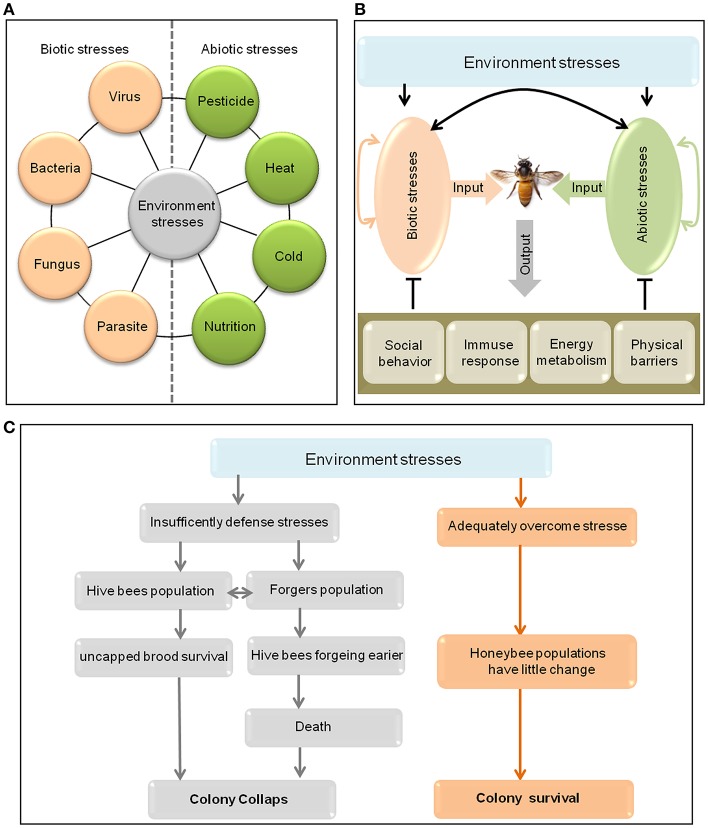Figure 1.
Environmental stresses on honeybees and the possible responses of honeybees to them. (A) A summary of some environmental stresses on honeybees. (B) Though different stress agents can interact with each other to affect the health of honeybees, the honeybees will defend against stress by using social behavior, immune response, physical barriers, and changing in energy metabolism. (C) Environmental stresses may lead to honeybee colony collapse or survival. On the one hand, if honeybees cannot bear the stress, both the hive bee and forager populations will decrease. The decrease in the hive bee population has negative effects on uncapped brood survival and the forager population. The decrease in the forager population triggers the early maturation of hive bees to become foragers, which have a high death rate, will also affect the hive bee population, and eventually drives the rapid depopulation of stressed honeybee colonies (Park et al., 2015). On the other hand, if the colony can adequately overcome the stresses, the colony population may change only slightly, and the colony is likely to survive.

